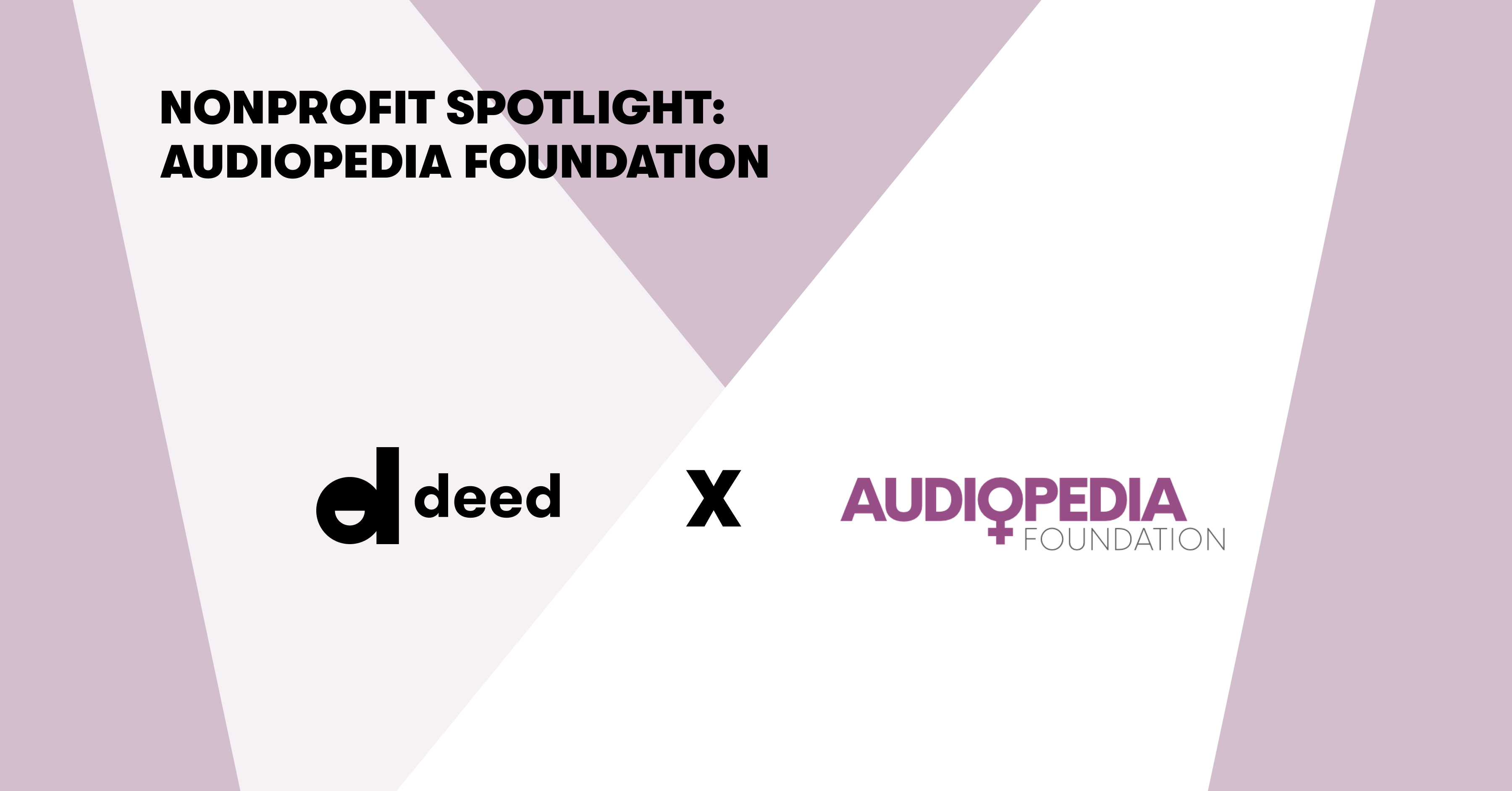Nonprofit Spotlight: Audiopedia Foundation
The Deed team sat down with Audiopedia Foundationto talk about their important mission, and how companies can help drive more impact.
As part of our nonprofit spotlight series, Deed connected with Marcel Heyne, co-founder of the Audiopedia Foundation, to explore how his team is reshaping access to knowledge for underserved communities worldwide.
The Audiopedia Foundation is a global initiative committed to breaking down barriers to information by delivering life-changing educational content in audio format to those without literacy skills or internet access. By harnessing the power of mobile technology and community partnerships, Audiopedia equips women and marginalized groups with the knowledge they need to make informed decisions about health, livelihoods, and social participation.
Read on to discover Marcel Heyne’s reflections on the origins of Audiopedia, its mission to democratize knowledge, and how Deed is helping amplify its reach and impact worldwide.
What motivated the creation of your organization?
“10 years ago, my wife and I were asking ourselves how we could really make a difference with the skills and experience we had gained so far. We started researching where our efforts could have the greatest impact, and it quickly became clear that women are the true drivers of change within their families and communities. But we also saw a huge barrier: more than 500 million women worldwide cannot read or write. That realization motivated us to look for a digital, scalable solution that could deliver essential knowledge to women in a way that didn’t depend on literacy. Audio became the obvious answer, which is why we created Audiopedia—sharing life-changing information about health, nutrition, family planning, and more in local languages through accessible audio formats.”
How has your organization changed since it was originally founded?
“Our organization has definitely evolved over the years. In the beginning, we experimented with different technologies, such as solar-powered audio players, but we realized they weren’t always the most sustainable solution. Based on our experience, we’ve refined our approach and now focus on two main technologies that are both efficient and scalable—one of them being SD cards. Another important change has been in how we fund our work. For many years, we relied primarily on government grants, particularly from the German government, but we’ve since shifted toward a more sustainable funding model. Today, we’re diversifying by building corporate partnerships and also offering our expertise as a service to other organizations working in similar areas. These shifts—both in technology and funding—reflect how we’ve grown and adapted to remain effective in a changing environment.”

What is the process of finding communities and delivering resources?
“For women who already have access to a smartphone and the internet, it’s very straightforward—they can access our resources directly. The real challenge is reaching the so-called last mile, where connectivity is limited. That’s where we rely on practical tools like SD cards that work in basic phones, or even solar-powered loudspeakers that can play our content anywhere. The key, though, is not just about the technology but about leveraging local infrastructure. For example, in Rwanda we’ve built on long-standing partnerships between local offices and community-based organizations. We really believe grassroots groups are the best partners because they stay with their communities over the long term, unlike NGOs that may only be present for a few years. So, our process is about finding those networks of community organizations and working through them to deliver knowledge as widely and sustainably as possible.”
What are the topics users view the most?
“Family planning is definitely one of the most important topics for our users. We’ve even noticed some surprising patterns—for example, Filipino women working in Arabic countries listen to this content a lot, likely because they don’t have the same opportunities to openly discuss these issues with other women. Another area that receives a lot of attention is gender-based violence, especially in Latin America, where it continues to be a major social problem. Nutrition and diabetes are also highly relevant, particularly in Central America and Mexico, where these health issues are widespread. And interestingly, climate change has brought new health challenges to the forefront. Dengue fever, for instance, is now appearing in regions where it wasn’t an issue before, so demand for information about it has grown significantly. All of these topics reflect both universal needs and very local realities.”

How can someone best support your organization?
“Of course, donations are always helpful, but what has truly shaped Audiopedia from the very beginning is the power of volunteers. Early on, we launched a crowd-translation project, and the response was incredible—we realized we could rely on thousands of people, mostly women, who wanted to contribute their time and skills. That spirit of volunteering still drives us today, which is why we built our platform to showcase opportunities for both individuals and companies to get involved. One very tangible way to support us right now is through our SD4Africa project, where we recycle unused micro SD cards and load them with Audiopedia content. There are billions of these cards sitting unused in drawers around the world, and by donating them, people can help provide women in remote areas with their own library of knowledge while also reducing electronic waste. It’s a simple action with a huge impact.”
Deed’s conversation with Marcel Heyne reminded us that many nonprofits are born from a simple but powerful question: How can we make a real difference? The Audiopedia Foundation has grown from that vision into a global initiative that breaks down barriers to knowledge by delivering essential information in audio format to women who cannot read or who live in communities without written languages. By partnering with Deed, Audiopedia has been able to connect with volunteers and strengthen innovative projects like SD4Africa, which recycles unused micro SD cards to create portable libraries of knowledge. There’s always room for more people to join this mission—whether by donating SD cards, contributing translations, or supporting the expansion of Audiopedia’s reach. We invite you to explore the Audiopedia Foundation’s profile on Deed and see how you can get involved.

